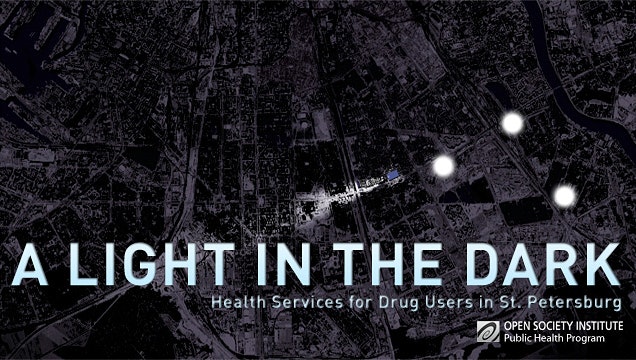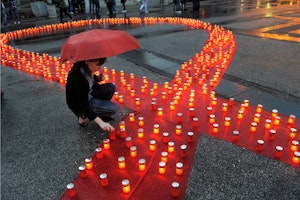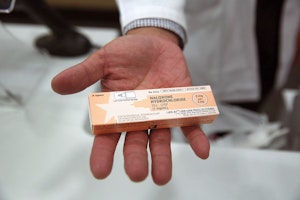A Light That Still Shines: An Update on Health Services for Drug Users in St. Petersburg
By Becky Tolson

We produced the above video about the Humanitarian Action Fund in 2008. But since then the HIV epidemic in Russia has continued unabated, largely due to the government’s refusal to acknowledge and address the health needs of its most marginalized and vulnerable populations. In St. Petersburg, there are as many as 60,000 people who inject drugs, more than half of whom are living with HIV.
Despite these steep challenges, Humanitarian Action’s harm reduction buses have continued to reach out to those whose needs are most hidden from society. In 2011 alone, the two buses offered clean needles, condoms, HIV and STI testing, and medical counseling and referral to more than 3,500 drug users. And in response to the widespread prevalence of tuberculosis among drug users in the city, the buses have also begun offering TB screenings.
Recognizing it cannot meet existing needs on its own, Humanitarian Action has pressed for local government support—both political and financial—for these critical services. Even as Putin’s regime intensifies its punitive policies towards drug users, pragmatic government officials in St. Petersburg have come to understand that an effective public health response to the HIV epidemic must include needle exchange and other harm reduction interventions. As a result, the city’s budget has allocated funding for harm reduction for the first time ever—albeit a modest sum in 2013–2015. In this respect, Humanitarian Action’s successes also serve as “a light in the dark” for harm reduction organizations struggling with funding in other Russian cities.
But in the short term, Humanitarian Action faces daily challenges in keeping its work going. Critical external sources of funding for HIV prevention among drug users and other vulnerable groups have largely dried up. This includes USAID, which was forced to leave the country in the wake of Putin’s re-election, as well as the Global Fund to Fight AIDS, TB and Malaria, which will not fund in Russia after 2014. Meanwhile, the current need is great. After years of service, Humanitarian Action’s buses are now dilapidated and the resources to replace them are missing. We invite you to stay tuned in the coming months as we provide updates about their fundraising campaign to meet this need.
Humanitarian Action is a former grantee of the Open Society Foundations.
Until January 2014, Rebecca Tolson was the deputy director of the International Harm Reduction Development Program in the Open Society Public Health Program.


